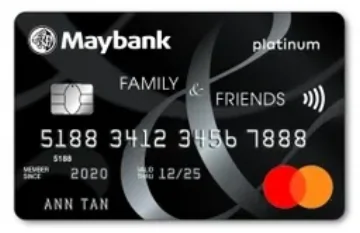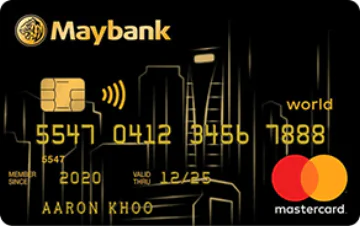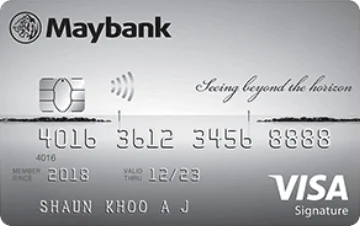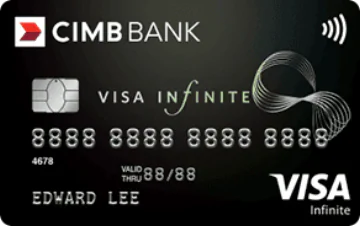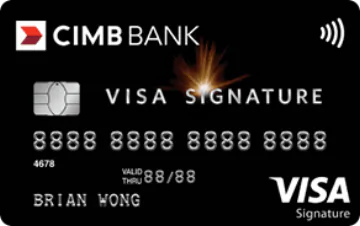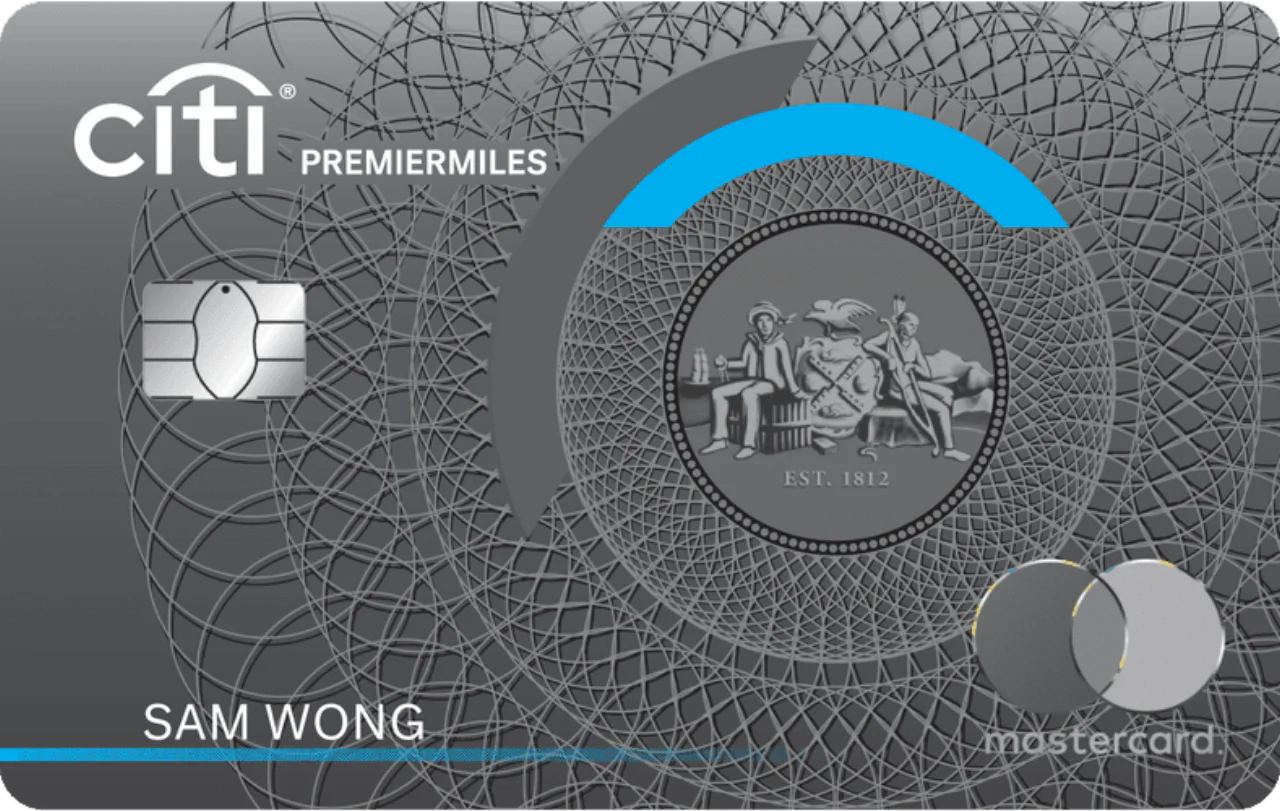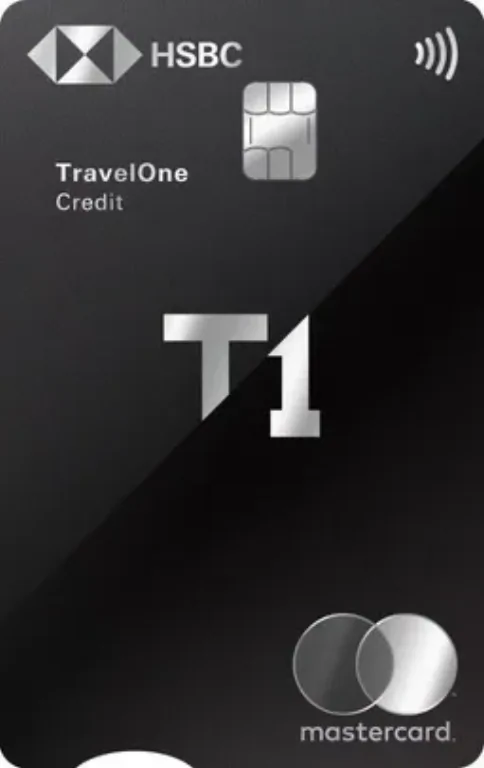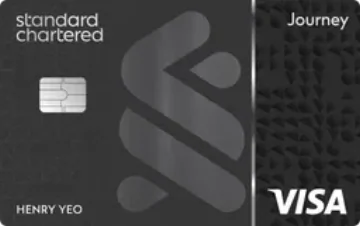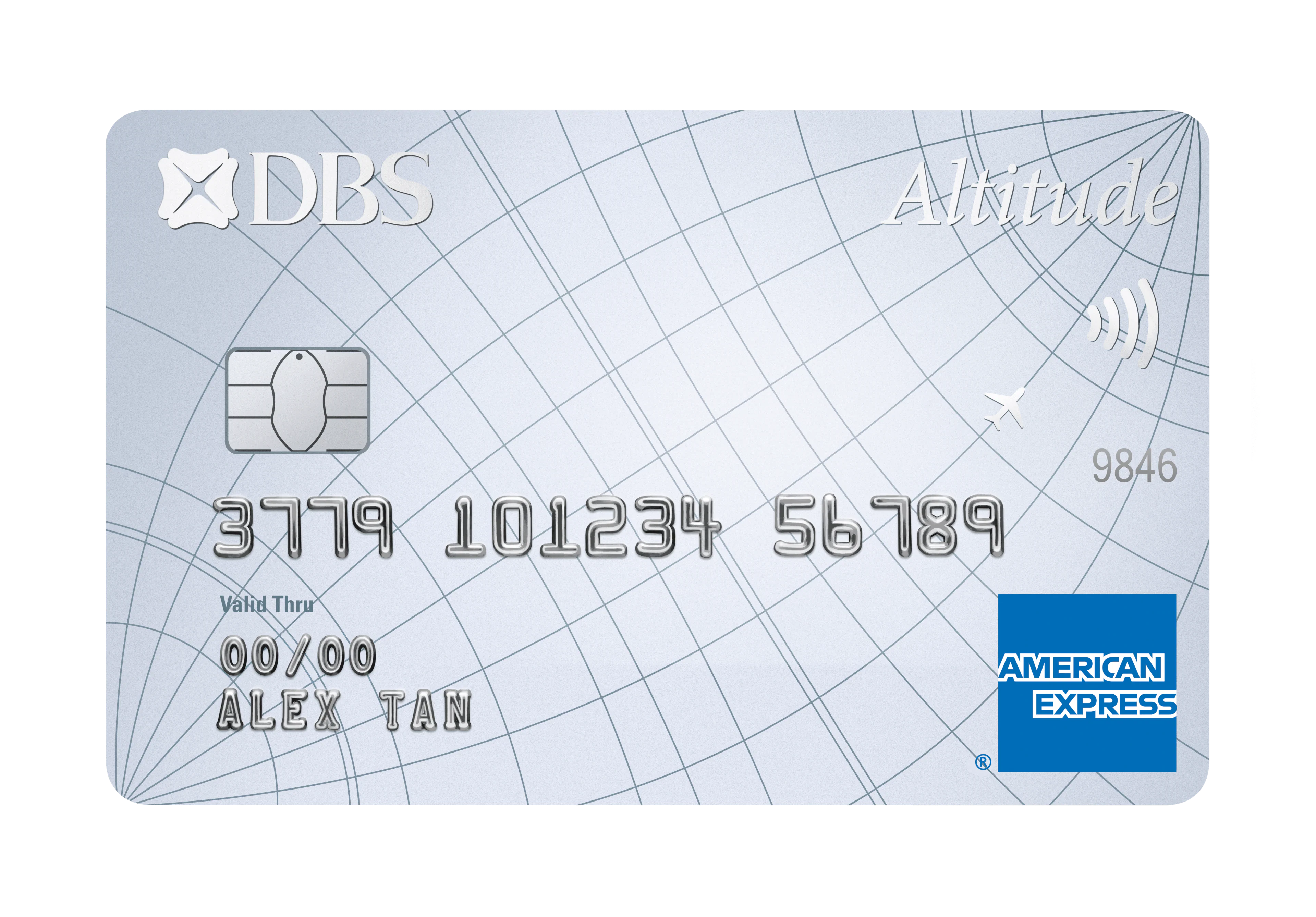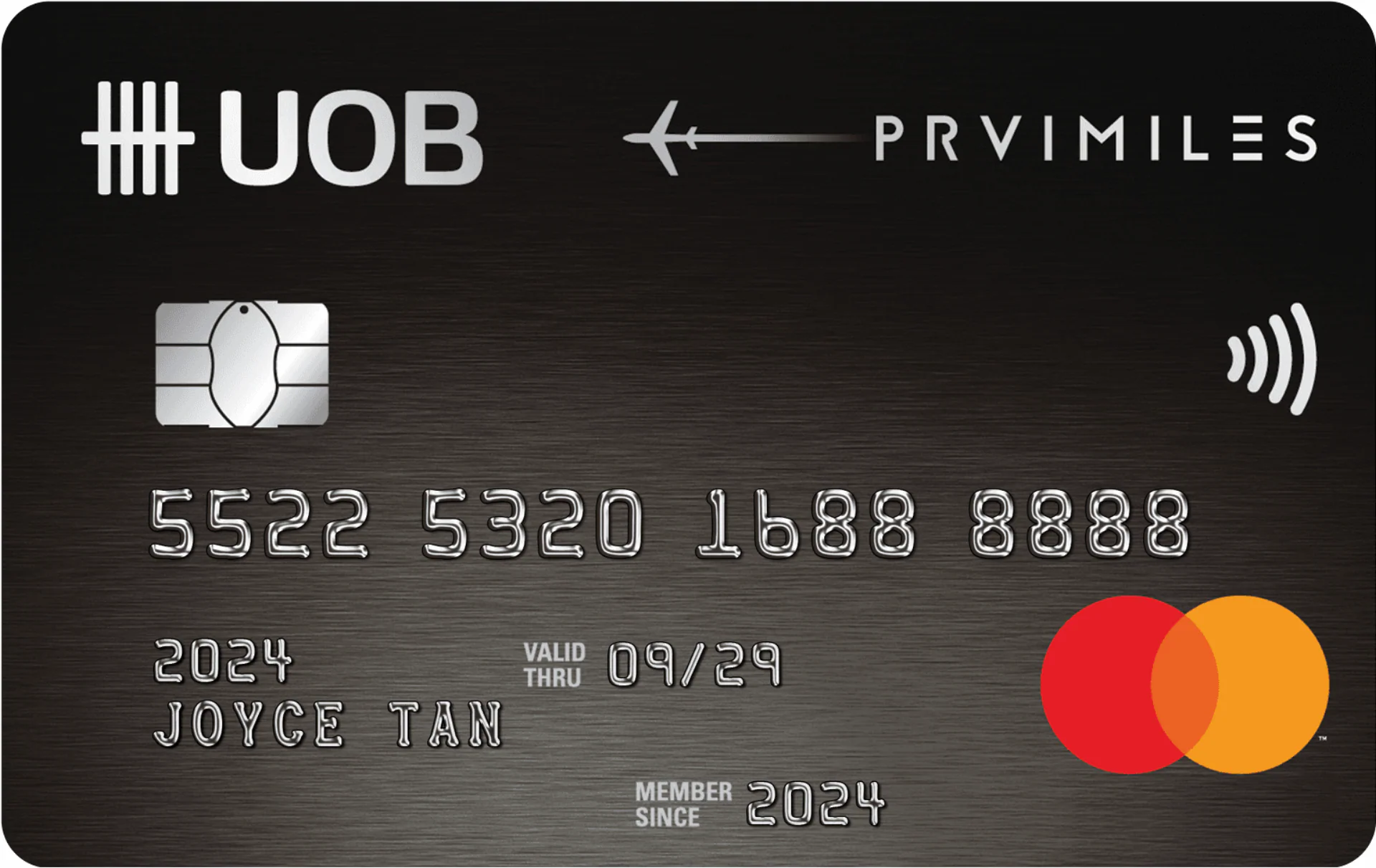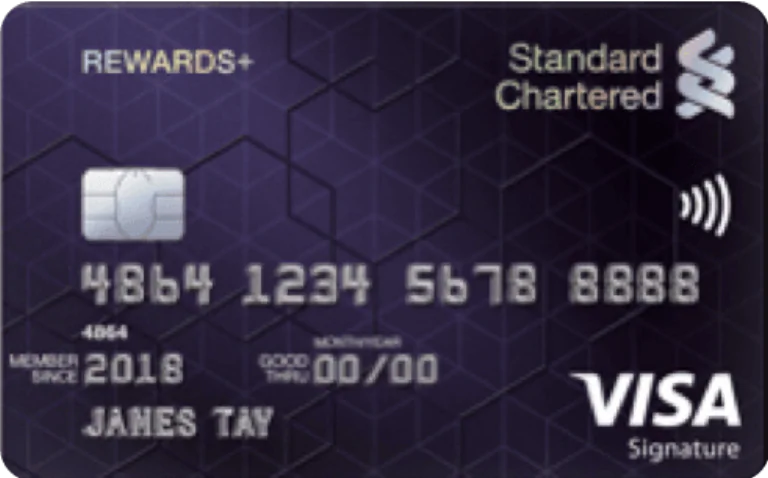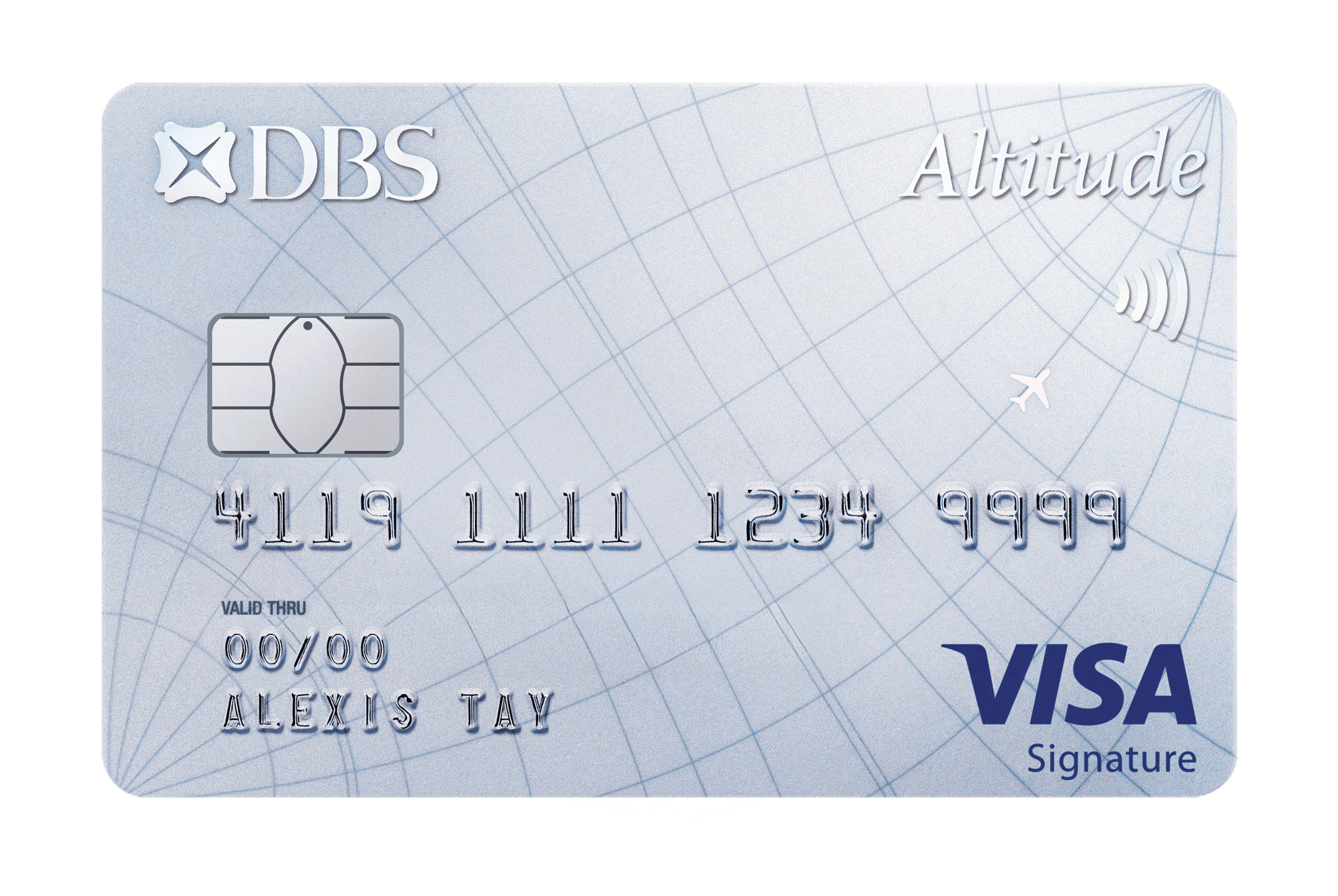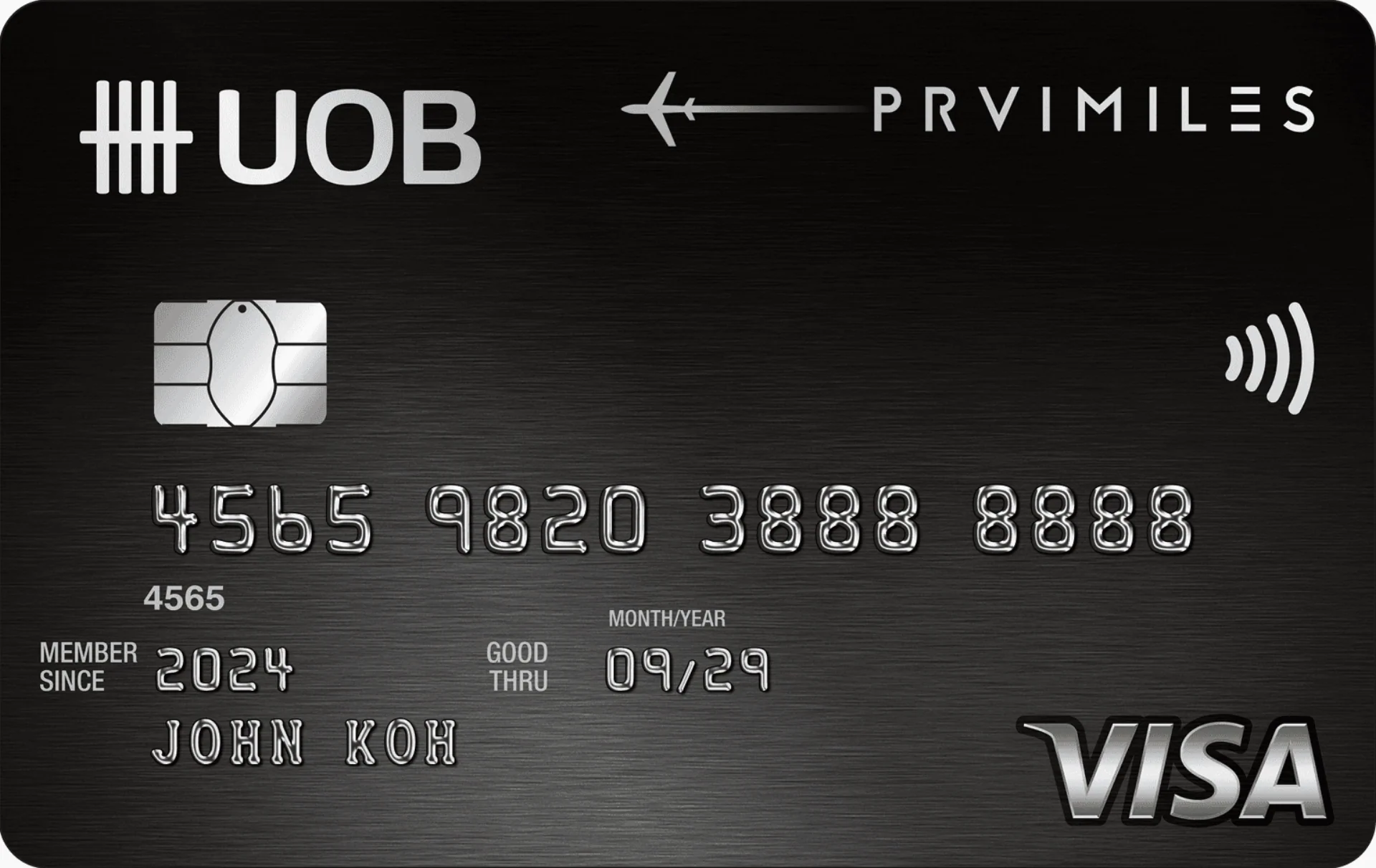Best Credit Cards for Overseas Spending in Singapore (2026)
Updated: 1 Jan 2026
Find the perfect credit card for your lifestyle.
Whether you're planning your next overseas adventure or simply making everyday purchases, discover the best credit cards for cashback, miles, or rewards.
Our Pick for Overseas Spending for Cashback
CIMB Visa Signature Card
- 10% cashback on online shopping, groceries, beauty/wellness, pet shops/veterinary services and cruises.
- Unlimited 0.2% cashback on all other spend.
- Complimentary travel insurance of up to S$500,000 when you charge your travel fares to this card.
- No annual fees for life + up to 4 supplementary cards with no annual fees.
- Online shopping rebate
- Supermarket rebate
- Annual Fee waiver
- Minimum spending of S$800 in the statement month to qualify for 10% cashback.
- 10% cashback is capped at S$100 per statement month per principal cardmember and up to S$20 per category. Earn 0.2% cashback on all spend when you exceed the cashback cap.
- Rebate cap applied
CIMB Visa Infinite Card
- Unlimited 2% cashback on travel, overseas spend and online spend in foreign currencies.
- Unlimited 1% on all other retail spends.
- Principal cardmembers enjoy 3 complimentary global lounge access at more than 1,000 airports annually.
- Charge your full travel fares to your CIMB Visa Infinite and automatically get travel insurance coverage of up to S$1 million for you and your family.
- No annual fees for life + Up to 4 supplementary cards with no annual fees.
- No rebate cap
- Airport lounge
- Travel insurance
- Annual Fee waiver
- Min. spending of S$2,000 in the statement month to qualify for the 2% cashback.
- Only Singapore citizens and Permanent Residents may apply.
- Minimum annual income requirement: S$120,000.
Our Pick for Overseas Spending for Miles
- 1.2 miles per S$1 spent locally.
- 2.2 miles per S$1 spent in foreign currency.
- Citi Miles never expire. Can be exchanged for a variety of frequent flyer miles, hotel stays, rewards and cash rebates.
- Use Citi PayAll to earn Citi Miles, Citi ThankYou PointsSM or Cash Back when you pay your bills with your Citi Credit Card.
- Earn miles on rent, condo management fees, school fees, taxes and bills via Citi PayAll.
- 2 free airport lounge visits per year to participating Priority Pass lounges worldwide.
- Up to S$1 million travel insurance coverage when you charge your travel tickets to this card. There will be a revision made to the Citi Credit Cards complimentary travel insurance. The Travel Insurance coverage in respect of a Trip charged to Citi PremierMiles Card will be updated to end on 31 March 2026. For more information, please click here.
- 11 different airline and hotel transfer partners.
- Generous sign-up bonus with relatively low minimum spend.
- Read our full review of the Citi PremierMiles Card.
- No expiry air miles
- Airport lounge
- Travel rebate
- Gift: Apple product
- Admin fee of S$25 (excluding GST) for each conversion of Citi Miles to frequent flyer miles.
- Service fee applies to Citi PayAll facility.
- Borrow up to 90% of your available credit limit, enjoy interest rates as low as 2.6% p.a., and get flexible payment terms up to 60 months when you apply with promo code CIPSS. T&Cs apply.
- Instant reward redemption with an extensive selection of airline and hotel partners via HSBC Singapore mobile app.
- Accelerated earn rate: up to 2.4 miles for your spending.
- No conversion fee for air miles or hotel points until 31 January 2025.
- Complimentary travel insurance coverage (including COVID-19) and 4x complimentary airport lounge visits for primary cardholders and guests of primary cardholders.
- Receive complimentary access to ENTERTAINER with HSBC app, with over 1,000 1-for-1 deals on dining, lifestyle and travel worldwide.
- Split your purchases across a range of flexible tenures with HSBC Instalment Plans.
- Unlimited air miles
- Airport lounge
- Travel insurance
- Bonus air miles
- High base minimum annual income requirement of S$65,000 (w.e.f. 1 October 2025) Learn more.
- Earn 3 miles for every S$1 spent on online transactions from transportation, food delivery, and online grocery merchants.
- Earn 2 miles for every S$1 on foreign currency transactions.
- Earn 1.2 miles for every S$1 spent locally.
- 2 complimentary visits to Priority Pass lounges around the world each year.
- Get peace of mind when you travel with complimentary travel insurance coverage of up +to S$500,000.
- Rewards points do not expire.
- Flexible redemption – enjoy your choice of air miles, cash rewards or travel vouchers on the SCB Rewards 360 platform.
- Get access to exclusive card offers and privileges with The Good Life programme.
- Bonus air miles
- No expiry air miles
- Airport lounge
- Travel insurance
- Transportation, food delivery and online grocery rewards capped at 3,000 miles in a statement cycle.
- Up to 1.3 miles per S$1 spent locally, including bus and train rides.
- Up to 2.2 miles per S$1 spent on overseas purchases in foreign currency.
- Receive 10,000 bonus miles when you pay the annual fee of S$196.20
- 2 free lounge visits within each 12-month period of your membership to over 1,500 airport lounges worldwide.
- Read our full review of the DBS Altitude Card.
- Bonus air miles
- Airport lounge
- No expiry air miles
- Unlimited air miles
- Miles are awarded in the form of DBS points which are awarded for every S$5 spent.
- Each conversion of DBS points to miles will be subjected to an administrative fee of S$25 (exclusive of GST).
Maybank Horizon Visa Signature Card
- Earn 2.8 air miles (7X TREATS Points) per S$1 spent on air tickets and in foreign currencies.
- Earn 1.2 air miles (3X TREATS Points) per S$1 spent on all local shopping, groceries, dining, hotel bookings and more
- Continue to earn TREATS Points (TP) on your insurance, private hospitals, utilities and education spend.
- Fuel savings of 20.05% + 3X TREATS Points at Caltex stations with Diamond Sky Fuel card
- Travel in comfort with complimentary access to selected VIP lounges
- Overseas/Foreign spend
- Air tickets
- Dining
- Air miles are only applicable if redemption is made on TREATS SG app
- TREATS Points awarded calculated based on blocks of S$5.
- TREATS Points expire after one year.
- Rebate cap applied
Our Pick for Overseas Spending for Rewards Points
- Borrow up to 90% of your available credit limit, enjoy interest rates as low as 2.6% p.a., and get flexible payment terms up to 60 months when you apply with promo code CIPSS. T&Cs apply.
- Instant reward redemption with an extensive selection of airline and hotel partners via HSBC Singapore mobile app.
- Accelerated earn rate: up to 2.4 miles for your spending.
- No conversion fee for air miles or hotel points until 31 January 2025.
- Complimentary travel insurance coverage (including COVID-19) and 4x complimentary airport lounge visits for primary cardholders and guests of primary cardholders.
- Receive complimentary access to ENTERTAINER with HSBC app, with over 1,000 1-for-1 deals on dining, lifestyle and travel worldwide.
- Split your purchases across a range of flexible tenures with HSBC Instalment Plans.
- Unlimited air miles
- Airport lounge
- Travel insurance
- Bonus air miles
- High base minimum annual income requirement of S$65,000 (w.e.f. 1 October 2025) Learn more.
- Earn 3 miles for every S$1 spent on online transactions from transportation, food delivery, and online grocery merchants.
- Earn 2 miles for every S$1 on foreign currency transactions.
- Earn 1.2 miles for every S$1 spent locally.
- 2 complimentary visits to Priority Pass lounges around the world each year.
- Get peace of mind when you travel with complimentary travel insurance coverage of up +to S$500,000.
- Rewards points do not expire.
- Flexible redemption – enjoy your choice of air miles, cash rewards or travel vouchers on the SCB Rewards 360 platform.
- Get access to exclusive card offers and privileges with The Good Life programme.
- Bonus air miles
- No expiry air miles
- Airport lounge
- Travel insurance
- Transportation, food delivery and online grocery rewards capped at 3,000 miles in a statement cycle.
UOB PRVI Miles World MasterCard
- Earn 3 miles per S$1 spend (UNI$7.5 per S$5 spend) on regional spend in Indonesia, Malaysia, Thailand, Vietnam, including online shopping on overseas website.
- Earn 2.4 miles per S$1 spend (UNI$6 per S$5 spend) on other overseas spend, including online shopping on overseas websites.
- Earn 1.4 miles per S$1 spend (UNI$3.5 per S$5 spend) on local spend.
- 4 complimentary lounge visits per calendar year for principal cardmembers.
- Earn up to 8 miles per S$1 spend (UNI$20 per S$5 spend) on agoda and Expedia bookings via UOB PRVI Miles website.
- Earn up to 6 bonus KrisFlyer miles for every S$1 spend if you also apply for a new KrisFlyer UOB Account.
- Complimentary personal accident coverage and emergency medical assistance of up to S$500,000.
- Choice to redeem for miles, cashback, or vouchers.
- No minimum spend and no cap on earned miles
- Bonus air miles
- Unlimited air miles
- Travel insurance
- No monthly spend required
- Annual fee of S$261.60
- Terms and conditions apply for all above-mentioned privileges. Visit here for more details. Insured up to S$100,000 by SDIC.
UOB PRVI Miles Visa Card
- Earn 3 miles per S$1 spend (UNI$7.5 per S$5 spend) on regional spend in Indonesia, Malaysia, Thailand, Vietnam, including online shopping on overseas website.
- Earn 2.4 miles per S$1 spend (UNI$6 per S$5 spend) on other overseas spend, including online shopping on overseas websites.
- Earn 1.4 miles per S$1 spend (UNI$3.5 per S$5 spend) on local spend.
- 4 complimentary lounge visits per calendar year for principal cardmembers.
- Earn up to 8 miles per S$1 spend (UNI$20 per S$5 spend) on agoda and Expedia bookings via UOB PRVI Miles website.
- Earn up to 6 bonus KrisFlyer miles for every S$1 spend if you also apply for a new KrisFlyer UOB Account.
- Complimentary personal accident coverage and emergency medical assistance of up to S$500,000.
- Choice to redeem for miles, cashback, or vouchers.
- No minimum spend and no cap on earned miles
- Bonus air miles
- Unlimited air miles
- Travel insurance
- No monthly spend required
- Annual fee of S$261.60
- Terms and conditions apply for all above-mentioned privileges. Visit here for more details. Insured up to S$100,000 by SDIC.
- Up to 10X reward points for every S$1 spent in foreign currency on overseas retail, dining and travel transactions.
- Up to 5X reward points for every S$1 spent on dining transactions.
- 1 reward point for every S$1 spent on all eligible spend.
- No min. spend required, 1 year annual fee waiver.
- Complimentary travel insurance coverage of up to S$500,000 when you charge your full travel fare to the card.
- Read our full review of the Standard Chartered Rewards+ Credit Card.
- Overseas rebate
- No monthly spend required
- Travel insurance
- Additional reward points are capped at 20,000 points per year.
- Purchases from local hotel restaurants and supermarkets are not considered as qualifying dining transactions.
- Rebate cap applied
Our Pick for Complimentary Airport Lounge Access
- 1.2 miles per S$1 spent locally.
- 2.2 miles per S$1 spent in foreign currency.
- Citi Miles never expire. Can be exchanged for a variety of frequent flyer miles, hotel stays, rewards and cash rebates.
- Use Citi PayAll to earn Citi Miles, Citi ThankYou PointsSM or Cash Back when you pay your bills with your Citi Credit Card.
- Earn miles on rent, condo management fees, school fees, taxes and bills via Citi PayAll.
- 2 free airport lounge visits per year to participating Priority Pass lounges worldwide.
- Up to S$1 million travel insurance coverage when you charge your travel tickets to this card. There will be a revision made to the Citi Credit Cards complimentary travel insurance. The Travel Insurance coverage in respect of a Trip charged to Citi PremierMiles Card will be updated to end on 31 March 2026. For more information, please click here.
- 11 different airline and hotel transfer partners.
- Generous sign-up bonus with relatively low minimum spend.
- Read our full review of the Citi PremierMiles Card.
- No expiry air miles
- Airport lounge
- Travel rebate
- Gift: Apple product
- Admin fee of S$25 (excluding GST) for each conversion of Citi Miles to frequent flyer miles.
- Service fee applies to Citi PayAll facility.
- Borrow up to 90% of your available credit limit, enjoy interest rates as low as 2.6% p.a., and get flexible payment terms up to 60 months when you apply with promo code CIPSS. T&Cs apply.
- Instant reward redemption with an extensive selection of airline and hotel partners via HSBC Singapore mobile app.
- Accelerated earn rate: up to 2.4 miles for your spending.
- No conversion fee for air miles or hotel points until 31 January 2025.
- Complimentary travel insurance coverage (including COVID-19) and 4x complimentary airport lounge visits for primary cardholders and guests of primary cardholders.
- Receive complimentary access to ENTERTAINER with HSBC app, with over 1,000 1-for-1 deals on dining, lifestyle and travel worldwide.
- Split your purchases across a range of flexible tenures with HSBC Instalment Plans.
- Unlimited air miles
- Airport lounge
- Travel insurance
- Bonus air miles
- High base minimum annual income requirement of S$65,000 (w.e.f. 1 October 2025) Learn more.
- Earn 3 miles for every S$1 spent on online transactions from transportation, food delivery, and online grocery merchants.
- Earn 2 miles for every S$1 on foreign currency transactions.
- Earn 1.2 miles for every S$1 spent locally.
- 2 complimentary visits to Priority Pass lounges around the world each year.
- Get peace of mind when you travel with complimentary travel insurance coverage of up +to S$500,000.
- Rewards points do not expire.
- Flexible redemption – enjoy your choice of air miles, cash rewards or travel vouchers on the SCB Rewards 360 platform.
- Get access to exclusive card offers and privileges with The Good Life programme.
- Bonus air miles
- No expiry air miles
- Airport lounge
- Travel insurance
- Transportation, food delivery and online grocery rewards capped at 3,000 miles in a statement cycle.
- Up to 1.3 miles per S$1 spent locally, including bus and train rides.
- Up to 2.2 miles per S$1 spent on overseas purchases in foreign currency.
- Receive 10,000 bonus miles when you pay the annual fee of S$196.20
- 2 free lounge visits within each 12-month period of your membership to over 1,500 airport lounges worldwide.
- Read our full review of the DBS Altitude Card.
- Bonus air miles
- Airport lounge
- No expiry air miles
- Unlimited air miles
- Miles are awarded in the form of DBS points which are awarded for every S$5 spent.
- Each conversion of DBS points to miles will be subjected to an administrative fee of S$25 (exclusive of GST).
CIMB Visa Infinite Card
- Unlimited 2% cashback on travel, overseas spend and online spend in foreign currencies.
- Unlimited 1% on all other retail spends.
- Principal cardmembers enjoy 3 complimentary global lounge access at more than 1,000 airports annually.
- Charge your full travel fares to your CIMB Visa Infinite and automatically get travel insurance coverage of up to S$1 million for you and your family.
- No annual fees for life + Up to 4 supplementary cards with no annual fees.
- No rebate cap
- Airport lounge
- Travel insurance
- Annual Fee waiver
- Min. spending of S$2,000 in the statement month to qualify for the 2% cashback.
- Only Singapore citizens and Permanent Residents may apply.
- Minimum annual income requirement: S$120,000.
Our Pick for No Foreign Transaction Fees
- Borrow up to 90% of your available credit limit, enjoy interest rates as low as 2.6% p.a., and get flexible payment terms up to 60 months when you apply with promo code CIPSS. T&Cs apply.
- Instant reward redemption with an extensive selection of airline and hotel partners via HSBC Singapore mobile app.
- Accelerated earn rate: up to 2.4 miles for your spending.
- No conversion fee for air miles or hotel points until 31 January 2025.
- Complimentary travel insurance coverage (including COVID-19) and 4x complimentary airport lounge visits for primary cardholders and guests of primary cardholders.
- Receive complimentary access to ENTERTAINER with HSBC app, with over 1,000 1-for-1 deals on dining, lifestyle and travel worldwide.
- Split your purchases across a range of flexible tenures with HSBC Instalment Plans.
- Unlimited air miles
- Airport lounge
- Travel insurance
- Bonus air miles
- High base minimum annual income requirement of S$65,000 (w.e.f. 1 October 2025) Learn more.
- Earn 3 miles for every S$1 spent on online transactions from transportation, food delivery, and online grocery merchants.
- Earn 2 miles for every S$1 on foreign currency transactions.
- Earn 1.2 miles for every S$1 spent locally.
- 2 complimentary visits to Priority Pass lounges around the world each year.
- Get peace of mind when you travel with complimentary travel insurance coverage of up +to S$500,000.
- Rewards points do not expire.
- Flexible redemption – enjoy your choice of air miles, cash rewards or travel vouchers on the SCB Rewards 360 platform.
- Get access to exclusive card offers and privileges with The Good Life programme.
- Bonus air miles
- No expiry air miles
- Airport lounge
- Travel insurance
- Transportation, food delivery and online grocery rewards capped at 3,000 miles in a statement cycle.
How to compare and choose the best credit cards for international travel
Choosing the best credit card in Singapore to use internationally involves considering several key factors.
Evaluate features such as annual fees, rewards rates, cardholder perks, and sign-up bonuses to find the card that suits your spending habits and travel needs.
However, certain features become even more critical when you're using your card for worldwide travel:
-
Overseas transaction fees: To avoid unnecessary costs, choose a card without foreign transaction fees. Many cards add a surcharge on purchases made outside of Singapore.
-
International acceptance: Ensure your card is widely accepted wherever your travels take you. While American Express is still accepted in many destinations, it's a good idea to carry a Visa or Mastercard as a backup, especially when travelling to less touristy regions as they are more widely accepted.
-
Travel protections: Enjoy peace of mind with a card that offers travel insurance benefits. These can include coverage for trip cancellations or delays, lost or delayed luggage, and rental car damage.
It's important to remember that no single credit card can offer everything you might want. When choosing a travel credit card, especially for international use, you'll likely need to prioritise certain features over others.
Some cards excel in rewards rates, while others offer generous sign-up bonuses or premium travel perks. Carefully compare the features of each card and consider your individual needs and preferences to find the best fit for your travel style and spending habits.
To help you choose the perfect travel companion, we've compiled a comprehensive guide to the best travel credit cards. Here, we'll highlight the key factors to consider when selecting a card specifically for international travel.
Foreign transaction fees
Foreign transaction fees are a critical factor to consider when choosing a credit card for international travel. These fees are essentially surcharges on purchases made outside of Singapore.
For anyone travelling abroad, a credit card with no foreign transaction fees is essential. Fortunately, many credit card issuers in Singapore offer cards without these fees, making it easier to find a suitable travel companion for your international adventures.
Reward type
When evaluating credit card rewards, consider both how you earn those rewards and how you can redeem them. Pay close attention to the rewards rate and bonus categories offered by different cards.
Some cards offer a flat rewards rate on all purchases, which can be beneficial for consistent spending across various categories. Others provide bonus rewards in specific categories like travel, dining, or entertainment, allowing you to maximise rewards based on your spending habits.
However, it's crucial to look beyond the headline numbers and understand the terms and conditions for earning rewards. Pay attention to eligible spending categories and any caps on rewards accumulation to ensure you can fully utilise the rewards program.
Equally important is understanding how you can redeem your rewards. Consider whether you can redeem your rewards for travel bookings, statement credit, cashback, or other benefits. Assess the value you get per reward point and whether you can transfer points to partner loyalty programs for potentially greater value.
Airport lounge access & travel perks
Credit card perks are the added benefits you receive simply for holding the card, separate from the rewards earned through spending. The extent of these perks often correlates with the card's annual fee.
Cards with no annual fee typically offer minimal perks, while premium cards with higher annual fees often provide a wide range of benefits, such as airport lounge access, travel insurance, and concierge services.
For those seeking a balance of rewards and perks, mid-tier cards with moderate annual fees can be a good option. If you utilise the perks regularly, their value can often offset the annual fee.
Annual fees & minimum spend
Many of the best credit cards for international travel come with an annual fee, which can vary depending on the card's features and benefits.
However, if you prefer to avoid annual fees altogether, there are still suitable options available in our list of credit cards, though they might offer lower rewards rates, smaller sign-up bonuses, or fewer travel benefits.
In addition to annual fees, some credit cards may also have minimum spending requirements to unlock certain benefits or rewards. Consider whether you can comfortably meet these spending requirements to fully utilise the card's benefits.
Acceptance & usability
While Visa and Mastercard are widely accepted globally, acceptance for American Express and Discover can be more limited, especially outside major tourist destinations. If you opt for an American Express or Discover card for travel, it's wise to carry a Visa or Mastercard as a backup to avoid potential acceptance issues.
Travel coverage
When choosing a travel credit card, evaluate the travel protections offered and prioritise those that align with your needs. Consider whether benefits like car rental insurance, trip cancellation coverage, and lost baggage protection are important to you, as these can offer valuable peace of mind and financial security during your travels.
Sign-on promotions
Travel credit cards often offer attractive sign-up bonuses, which can be worth tens of thousands of points or miles. However, it's important to consider the spending requirements associated with these bonuses. Never spend beyond your means just to chase a sign-up bonus. The interest incurred on outstanding debt could easily outweigh the value of the bonus.
How to maximise your credit card rewards overseas
Using your credit card strategically while travelling can unlock significant savings and enhance your trip. Here's how to maximise your rewards and benefits when spending abroad:
-
Choose the right card: Opt for a card with no foreign transaction fees, a high rewards rate on travel expenses like flights and hotels, and valuable travel perks like insurance or airport lounge access.
-
Utilise bonus categories: Many cards offer bonus rewards on specific spending categories, such as dining or airfare. Use your card strategically to earn extra rewards on these purchases, but always understand the category restrictions to ensure your spending qualifies.
-
Be smart about currency conversion: Avoid dynamic currency conversion (DCC), which often offers unfavourable exchange rates. Choose to pay in the local currency to leverage your card's exchange rate.
-
Unlock travel hacks: Redeem your accumulated rewards to offset travel expenses like flights and hotels. Before your trip, inform your card issuer of your travel dates and destinations to avoid any issues with your card being blocked for suspicious activity.
Which credit card is best for overseas spending?
The best credit card for overseas spending depends on your individual needs and travel habits. Here's a quick guide to help you choose:
-
Frequent flyers: Look for cards with high rewards rates on airfare and travel-related expenses, airport lounge access, and travel insurance benefits.
-
Business travellers: Consider cards with comprehensive travel insurance, including trip cancellation and baggage delay coverage, as well as perks like concierge services and priority check-in.
-
Budget-conscious travellers: Opt for cards with no annual fees, low foreign transaction fees, and competitive rewards rates on everyday spending.
The information on this page is for educational and informational purposes only and should not be considered financial or investment advice. While we review and compare financial products to help you find the best options, we do not provide personalised recommendations or investment advisory services. Always do your own research or consult a licensed financial professional before making any financial decisions.
